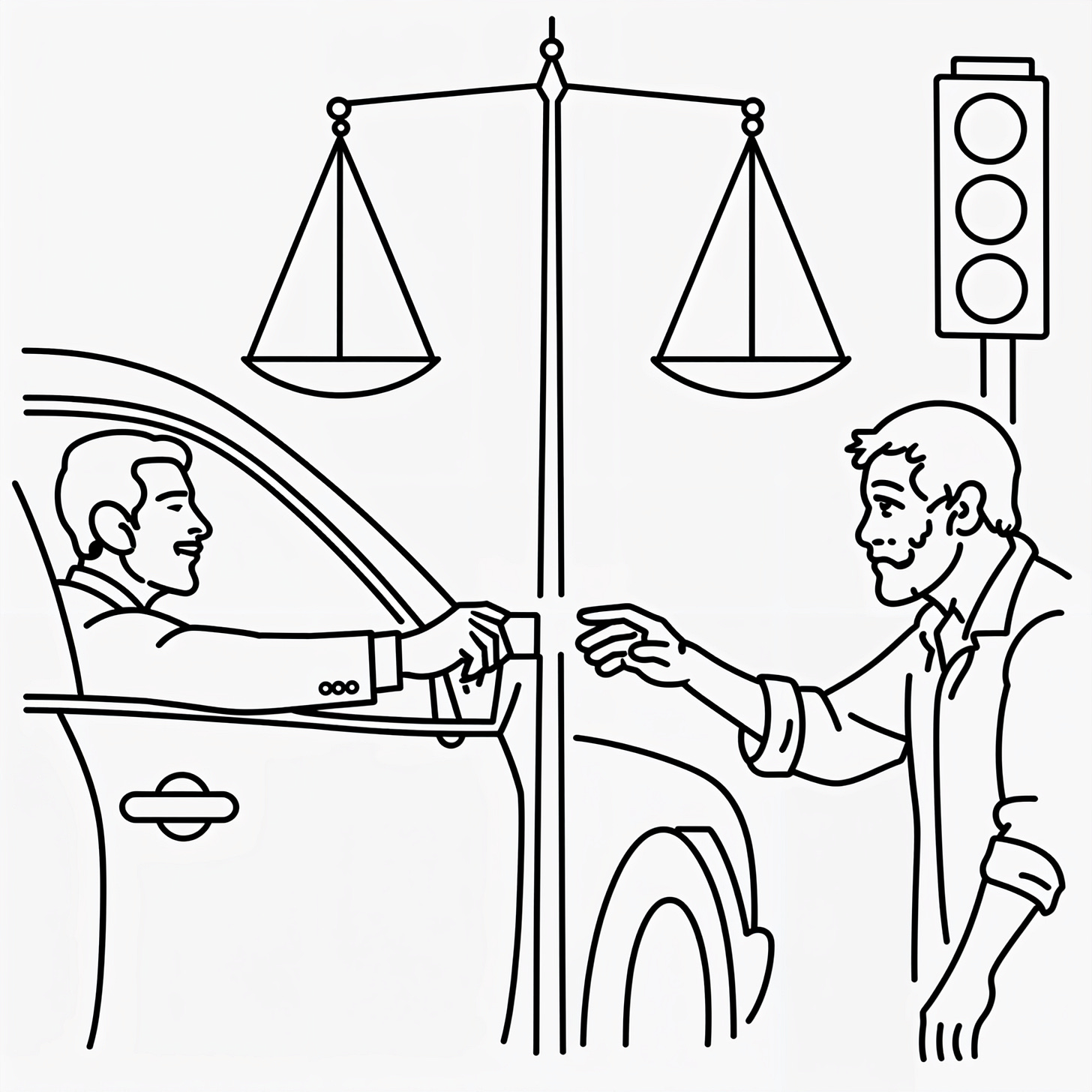1-42: Selflessness vs. Selfishness
The Generosity Paradox
Last Friday evening, I was on my way to an event when I got stuck at a red light for a while. A barefoot homeless man wandered through the stopped traffic, panhandling. A few cars back from the light, I had a moment to think. Some days, I ignore people in his situation completely; other days, I reach for my wallet to see if I have anything to spare. My response often feels like a coin toss. That day, I happened to be feeling generous and decided to hold out a five dollar bill from the passenger window. He took it gracefully and said something like, "Have a blessed day, sir." I replied, "You too."
Reflecting on this "act of generosity," I can't help but wonder if I was giving out of pure generosity, or if I was trying to pacify his request and make myself feel better? Perhaps it was a bit of both, but exactly how much it is very hard to say. Seeing someone in need can provoke an internal discomfort, a subtle friction in the mind. The act of giving may be an attempt to relieve that discomfort as much as it is about helping the other person. If it is 51% out of selfishness rather than selflessness, does that mean I would have been better off ignoring him completely? If it was 51% out of selflessness instead, does that single act define me as a "good person?"
Imagine sitting in your living room, watching TV with your family. A commercial comes on, and you start chatting with your parents. The commercial is a bit distracting, so you instinctively hit the mute button to focus on the conversation. In a way, giving a homeless person something can feel like pressing the mute button, momentarily silencing a request that pulls you out of your world and into theirs. The mental relief that comes with giving, when well-received, is a distinct feeling. It’s like finding your bearings when lost in a desert; an act of generosity can reorient you, guiding you back to your purpose through a nudge in the right direction.
While psychologists have long debated the nature of altruism, my interest in the topic began when I saw my parents give money to the Church every Sunday at mass. More recently, living in a big city and encountering panhandling homeless people has deepened my curiosity about the motivations behind generosity. On one hand, the empathy-altruism hypothesis argues that true selflessness exists and that we are capable of helping because we feel deeply for others. On the other hand, egoistic theories suggest we give because it makes us feel good or improves our social standing. Perhaps both can be true simultaneously, which leads me to think of how much one concept prevails over the other.
Think about the last time you donated to charity, helped a friend, or even complimented someone. Did it give you a sense of warmth, a small rush of joy? If so, does that dilute the purity of your generosity, or is that just the natural byproduct of human connection? What about the "Give where you Live" theory, the idea that people tend to donate more generously to the communities they reside in? Consider Ken Griffin, who has made significant philanthropic contributions to Chicago, and more recently, Miami, after relocating there. His funding of projects like The Underline reflects a pattern where individuals invest in their immediate surroundings, whether out of civic pride, personal benefit, or a combination of both. Ultimately, the visibility of one's generosity can reinforce a personal legacy, making the act of giving as much about shaping one's public identity as it is about making a difference.
The complexity of generosity lies not in whether it is purely selfless or influenced by self-interest, but in the impact it has on both giver and receiver. Perhaps the true measure of generosity is not about purity of intent but about the good it brings into the world and the suffering that it reduces or eliminates. Whether driven by empathy, personal fulfillment, or social recognition, acts of giving shape our communities, strengthen human connection, and remind us of our shared responsibility to one another. Instead of seeking an unattainable ideal of selflessness, we should embrace the paradox and not let it prevent us from giving.


